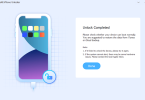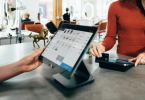
CRM stands for customer relationship management. A powerful CRM helps businesses to gather customer information, and be able to utilize the data to market better, sell more, and even grow the business more effectively. The system is, therefore, able to collect and store useful information about customers. Whether your business uses manual collection and entries or automated solutions, CRM helps you to build a wealth of powerful information for better business management.
With the rise in m-shopping and eCommerce stores, CRM technology has progressively evolved. But what is a CRM system? As opposed to CRM which is generally customer relationship management, CRM system is software that businesses use to manage their interactions with customers.
- Customer preferences
- Shopping patterns
- Customer service notes
- Purchase history
- Demographic information
- Contact information
- And many more
Fortunately, with a good CRM system, there is no limit on how much detail you can get when gathering customer-related information. You do not need however to worry about the volume of information as CRM comes with an automation feature and easily integrates with other software to make the collection and sharing of data between platforms easy.
It is therefore clear that CRM software brings more benefits to the sector. But is CRM for retail a possibility? In this article, we look at some of the key benefits a good CRM can offer for your retail business and the possibilities of utilizing the system for improved business platforms.
Contents [hide]
Benefits Of CRM To The Retail Market
Once you develop a good understanding of CRM and how it integrates with the retail sector, you will be in a better position to derive several benefits from the system. Some of these benefits are:
- Increase customer return and retention
- Make customers happier
- Improve the performance of a business
- Improve customer loyalty
- Encourage repeat sales
- Cut marketing costs while reducing spending on ineffective marketing campaigns
- Improve marketing
Getting The Most From CRM For Retail
Having a CRM is the first step in improving your retail experience. However, taking advantage of the system is much better as that is the only way to get the most from the system. Here are some of the key tips on how to improve your experience with CRM solutions for retail.
Be Thorough
Keep accurate and detailed customer records making every customer profile as detailed as possible. Also, use the software to keep purchase histories, demographic information, and any other relevant details. These key details can be used to aid marketing and illustrate to customers that you are paying attention to your interactions.
Segment Data
Data segmentation makes work easier as it helps you to have a better understanding of the type of customers you serve. Divide buyers into precise categories based on the services offered. Segments can either be in terms of age, gender, location, purchase history, interests, etc.
With this information, it is much easier to send more personalized marketing campaigns while reduces expenditures on nun-rewarding campaigns.
Any time you scroll your social media account, you get several relevant sponsored ads most of which you end up clicking. This is because social media learns the search patterns and therefore displays only ads that are more likely to be clicked. This is exactly what you want with your online retail business.
CRM helps you by segmenting customer data and thus making it easier to create personalized ads for easier marketing. By viewing clientele groups that have been sorted by interests, gender, spending histories among other groups, sales reps will be much more able to communicate with clients in the best way possible.
Integrate With Other Apps
Getting the most out of a CRM includes integration with other software. This saves you more time as it eliminates manual entries.
Businesses that do not use CRM spend more time with manual data entries for every customer detail collected. CRM can easily integrate with some retail management programs such as website analytics, payment processing, sales software, e-commerce, retail ERP, inventory records among many other supplications.
Once this is done, you get a smooth, fully functional, automated CRM process that is much easier to use. It saves time, boosts your business, and saves money too.
Access To Most Relevant Information
Many customers who visit your online retail store may leave without putting a mark – either by placing an order or even paying for the items they have already laced in their carts. However, the CRM system gives detailed information on all that activity for your sales teams to be able to take appropriate action at the right time.
This information is therefore very relevant and you will be in a position to send out appropriate information to prospects and customers whenever such interactions occur. For instance, a customer who forgets to pay for the orders in their cart can be reminded to pay. Customers can able be given more options to pick from in case they did not get the products they seem to have been looking for. Besides, online retailers can also send promotional messages to their customers based on products most purchased by them.
Payment Data
If your online retail store supports several payment channels, it may be more challenging to analyze your payment data quickly. However, CRM for retail business helps you to easily manage invoicing, billing, payment failures among many other payment data. More advanced analytics available in CRM helps in tracking trends in payment. This makes it easier to analyze:
- Best sources of revenue for your business
- Customers with the highest value
- Other metrics that can be used to customize service delivery
Centralized Social Media Interactions
Running an online store may not be very easy without social media accounts. This is because a lot of traffic is generated by social media referrals together with paid campaigns. Besides, social media is the source of many customer queries, and customers will judge your customer service based on your response to the queries you get.
Also, a large percentage of customers who raise complaints about social media want them to be responded to as early as possible. By putting all your social media accounts in a central place, CRM helps your online retail store by gathering all the customer concerns and issuing periodic alerts to reduce your response time.
Managing Orders
Order management involves all the steps beginning at leads generation and goes all the way to revenue. With a good CRM, you will be able to view orders, act on them, process them, track shipments, deliver and even get customer feedback on every product delivered.
Effective Use Of Time
Research shows that sales reps only spend about 11% of their time on active marketing and selling. A better part of their time is therefore spent on problem-solving and related administrative issues. With a good CRM, it is possible that you can automate many self-service processes and therefore save time for the sales agents. Sales agents, therefore, have more time to focus on their key tasks.
CRM system is, therefore, a big possibility for the retail market. An online retail store should therefore integrate the software in its system to be able to forge long-term relations with its customers and reap the many benefits the system brings to the business.






